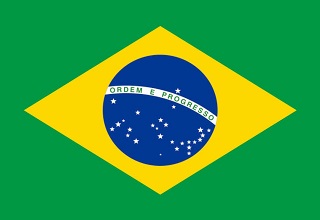Regarding the Inspection and Quarantine Requirements for the Dairy of Pakistan
I. Basis for inspection and quarantine
(1) The Import and Export Animal and Plant Quarantine Law of the People's Republic of China, the Implementation Regulations of the Import and Export Commodity Inspection Law of the People's Republic of China, the Implementation Regulations of the Import and Export Commodity Inspection Law of the People's Republic of China, the Food Safety Law of the People's Republic of China, and the Implementation Regulations of the Food Safety Law of the People's Republic of China.
(2) The Measures of the People's Republic of China for the Administration of Import and Export Food Safety and the Provisions of the People's Republic of China for the Registration of Overseas Production Enterprises of Imported Food.
(3) Protocol between the General Administration of Customs of the People's Republic of China and the Ministry of Food Safety and Research of the Islamic Republic of Pakistan on Inspection and Quarantine Requirements of Dairy products exported from the Islamic Republic of Pakistan to China.
(4) Announcement of the General Administration of Customs on Clarifying the relevant requirements for Inspection and Quarantine of Imported Dairy Products.
2. The range of products allowed to be imported
Pakistan dairy products exported to China (hereinafter referred to as "Exporting to China Dairy products") refers to foods originating in the Islamic Republic of Pakistan (hereinafter referred to as "Pakistan") and processed from cow's milk or camel's milk as the main raw material, including milk powder, whey powder, whey protein powder, colostrum powder, sterilized milk, mixed milk, fermented milk, cheese and recycled cheese, thin cream, cream, anhydrous cream, etc.
3. Requirements of production enterprises
The dairy production enterprises exported to China are approved or registered by the Pakistani authorities, under the supervision of the Pakistani authorities, and meet the requirements of China and Pakistan on animal health and public health.
According to the Food Safety Law of the People's Republic of China and the Provisions of the People's Republic of China on the Registration of Overseas Production Enterprises of Imported Food, the production enterprises that export dairy products to China shall be registered in China, and the products produced by the enterprises that do not obtain the registration shall not be exported to China.
4. Dairy animal requirements for providing raw milk
Dairy animals providing raw milk for dairy products exported to China must meet the following conditions:
(a) from a farm that meets the following conditions:
1. Quarantine restrictions on foot-and-mouth disease have been lifted for at least 2 months.
2. anthrax anthrax did not cause quarantine restrictions on the farm in the past 12 months.
3. No brucellosis, bovine tuberculosis, para tuberculosis, rinderpest, and rift valley fever have been detected in dairy farms.
4. At the time of camel milk collection, dairy farms should also be free of infection or suspected infection with Middle East Respiratory syndrome coronavirus (MERS-CoV).
5. The farm is regulated by the National Department of Food Safety and Research of Pakistan (MNFSR).
6. The farm and its surrounding areas are not subject to quarantine restrictions for animal diseases in accordance with the World Organization for Animal Health (WOAH) Terrestrial Animal Health Code and the Animal Health Regulations of Pakistan.
(b) the animals have not been fed the feed prohibited for animals in Pakistan and China.
(c) Implement Pakistan's National residue control plan developed by MNFSR and require enterprises to test raw milk. According to the national residue control plan and raw milk testing results, the residues of veterinary drugs, pesticides and other toxic and harmful substances in dairy products exported to China do not exceed the maximum limits set by Chinese standards.
Requirements for quarantine examination and approval
For milk prepared by pasteurization process to be exported to China, quarantine examination and approval shall be conducted in advance and an Entry Animal and Plant Quarantine Permit shall be obtained.
6. Certificate requirements
Dairy products exported to China should be accompanied by a veterinary health certificate issued by Pakistan.
7. Food safety requirements
(1) Dairy products exported to China shall comply with the laws and regulations of Pakistan and China as well as the national food safety standards of China.
(2) The product adopts one of the following processing processes:
1. Sterilization procedure with minimum temperature of 132℃ for at least 1 second (UHT);
2. If the pH of the milk is below 7.0, use a sterilization procedure with a minimum temperature of 72 ° C for at least 15 seconds (high-temperature instantaneous pasteurization HTST);
3. If the pH of milk is 7.0 or above, apply the HTST procedure twice.
8. Packaging and marking requirements
Dairy products exported to China must be packaged with new materials that meet Chinese standards. The outer package shall be marked in Chinese, Urdu and English with specifications, place of origin (specific to state/province/city), destination, product name, weight, name of manufacturer, registration number, batch number, storage conditions, production date and shelf life.
The inner packaging shall comply with the relevant regulations of China, and the label shall indicate the country of origin, product name, enterprise registration number, name, address and contact information of the manufacturer, production date and shelf life, and production batch number.
9. Storage and transportation requirements
The whole process from packaging, storage to transportation of dairy products exported to China shall conform to sanitary conditions and prevent pollution by toxic and harmful substances. The goods shall be sealed after loading into the container, and the seal number shall be indicated in the veterinary health export certificate. Do not open and change the package during transportation.
It is hereby announced.
GACC
November 6, 2023




